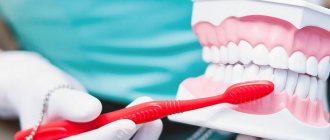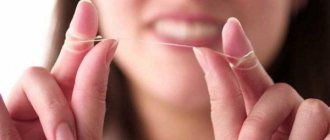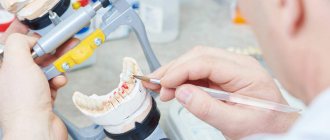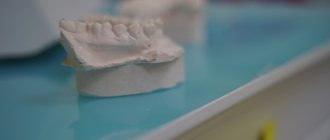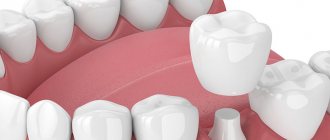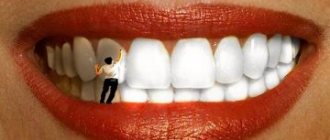Who is a dentist?
A dentist is first and foremost a doctor, a specialist in the field of problems of the oral cavity and maxillofacial area.
He checks the condition of teeth and treats patients, advises on issues of implantation, growth, changing teeth, and gives recommendations on further oral care.
Dentists: the richest, but not the healthiest
School graduates have a busy time - they are choosing institutes where they will receive the profession of their dreams. Someone will continue the dynasty, and someone will become the founder, for example, of a dynasty of dentists. Traditionally, there is a large competitive selection for this faculty of medical institutes. But few people know what pitfalls there are in this seemingly prosperous and successful field and that you can only break into it with great effort.
The dentist's profession is very difficult. According to the World Health Organization, it is among the top three most emotionally taxing jobs. There is evidence that dentists have a high rate of suicidality. Therefore, in my opinion, our main professional hazard is constant emotional stress. What is this connected with? Because dentists work, as officials say, with citizens. Moreover, with those of them who ended up in the doctor’s chair not because of a great desire, but because of severe pain or some problem that urgently needs to be solved. And there are 99 percent of such citizens, that is, patients. Professions in the “person-to-person” category are always difficult, and if this person is in pain, if he is negatively inclined, the tension only increases. Most often, the patient throws out negative emotions on the doctor, because there is no one else nearby...
The dental profession is in the top three most emotionally difficult jobs
Photo: Pixabay.com/ru
At the same time, dentistry is a closed industry, little understood by the average person. And it seems to each patient that his case is unique and complex. And he wants the doctor to explain everything to him - to tell him and show him. As a result, the doctor must do his job and give a short lecture to almost every patient. And this also adds emotional stress. But dentists are not at all superhumans who have iron health and overcome all difficulties effortlessly. Over the years, the specifics of the work are reflected in the physical condition. For example, the risk zone is the eyes. A tooth is a fairly small organ. Therefore, manipulating it requires acute vision; the dentist is partly a jeweler. No matter what modern lighting is, it is impossible to see everything that is “going on” in a tooth with your own eyes. Therefore, modern doctors work under magnification, using microscopes and other optical equipment. This adds stress to the eyes, which will sooner or later result in vision problems.
Most often, patients ask the doctor to show and tell them about their actions.
Photo: Pixabay.com/ru
Almost all dentists know what back pain is. Scoliosis, kyphosis, and other spinal diseases are not uncommon. They are formed because the doctor has to work bent over almost all the time. Many dentists suffer from varicose veins - this is the result of having to work either standing or sitting, practically without changing position, in a static state. A dentist should not let his own health take its course, otherwise illnesses will come along with recognition. Now I’ll tell you about the positive aspects of the profession. Fortunately, there are many more of them than negative ones. Dentistry is one of the most knowledge-intensive branches of medicine. This means that a dentist will always be a little ahead, a little more educated, a little more “advanced” than his colleagues from other fields. In material terms, dentists are, as they say, “rich people,” because there are huge working capital in this area. And the “work front” is very extensive. After all, each of us initially has 32 teeth, plus 20 milk teeth. That is, a person “exploits” 52 teeth in his entire life! And rarely does anyone do without the help of a doctor.
But the result of the dentist’s work is immediately visible
Photo: Pixabay.com/ru
When I entered the first year of medical school, one very respected specialist made the following argument in favor of our profession: “A dentist can see his work either right now or in two or three weeks.” That is, this is a very tangible, very understandable job in which you very quickly gain experience and mastery. It is difficult for the surgeon to assess how he sutured the muscle. But a beautiful filling, veneer, restoration - they are visible right away. In dentistry, the doctor independently decides what to do in a particular situation. There are many options, but at the moment of choice you become a creator. In general, being a doctor is from God. At the same time, we live here and now, constantly learning, improving our skills and talents. And all the negative moments disappear when the patient gets up from the chair, smiles and says: “Thank you, doctor!”
Characteristics of the profession - what it does, functions and responsibilities
Let's see what specializations dentists have:
- The therapist is the doctor to whom you turn first. The general practitioner analyzes the general condition of the teeth. Finds problem areas, treats caries, removes nerves, puts fillings and restorations, and prepares teeth for prosthetics.
- The surgeon performs operations in the oral cavity: removes teeth, restores the jaw after injuries, prepares the oral cavity for implantation, prosthetics, orthodontic and orthopedic treatment. Deals with problems related to inflammatory processes, cysts and tumors.
- The orthodontist corrects malocclusion - a situation where the jaws do not close evenly, but with a deviation to the right or left, corrects the curvature of the teeth - increased crowding, in which the teeth have “not enough space” and they run into each other or vice versa. The result of his work carries an important aesthetic point for the patient.
- Orthopedist – comes to the rescue when teeth are missing. Restores them with the help of dentures, removable or permanent, and fully reproduces the important chewing function. If it was possible to save a small part of the tooth, then it uses restoration technology using a crown. This doctor works in tandem with a dental technician - a specialist in the manufacture of dentures and prosthetic elements for a specific case.
- Hygienist is a relatively new field. Monitors the cleanliness of the oral cavity, carries out preventive and hygienic procedures to maintain oral health. Removes plaque, tartar, polishes enamel. Provides consultations regarding the prevention of dental diseases.
- Implantologist – specializes in restoring lost teeth using implants. Innovative technology allows you to install tooth analogues that are no different from real ones. Conducts a full examination, preparation in several stages and the implantation itself. Observes the patient throughout the entire period of rehabilitation after the intervention.
- A pediatric dentist is a doctor who deals with children's dental problems. Removes and treats baby teeth so that the molars are formed healthy, puts fillings, fights diseases associated with the oral cavity, which children are prone to at an early age. A pediatric dentist should not be a doctor, but a kind wizard who will convince the child to treat his teeth and be able to perform all the manipulations without tears.
Pride of the profession
Every activity has its own stars. Dentistry is no exception. Next, let's look at the most famous female dentists.
Yegana Marufidi
Therapist, periodontist. Yegana works in the direction of aesthetic restoration. Work experience over 20 years. In reviews, clients note the attentiveness of the doctor. They emphasize accuracy in work and a personal approach to each client.
Nadezhda Zholobko
Pediatric dentist providing treatment and prosthetic services. In addition, she deals with cosmetic dental restoration and professional cleaning of the oral cavity.
The doctor notes that it is important to consult a specialist in a timely manner. In the early stages, caries in children can be treated painlessly. Otherwise, the child will face pain and discomfort.
Natela Lomakina
The doctor works in such specialties as therapy, surgical dentistry, restoration and aesthetics. Natela has experience in management activities.
Since the beginning of the 2000s he has been working in Milan. She underwent retraining in dental centers in Italy. Having mastered innovative European-style dental technologies, she became the creator and director of a famous dental center.
Irina Litvin
Maxillofacial surgeon. Despite little work experience, she has established herself as a professional in her path. The key specialization is aesthetic rehabilitation of patients. New works by Irina are constantly published regarding the relationship between the temporomandibular joint and the psychological state.
What a dentist should know and be able to do - personal qualities and skills
First of all, have a great desire to help people. There is no person who has never had a dental problem.
The doctor must find an approach to everyone, convey the need for the procedures performed and set them up for a positive outcome. Calm and support.
The profession is associated with the ability to work with a large amount of information at the initial stage; in the future, it is important to be able to successfully combine knowledge with practice. This is the basis for making a diagnosis - a decisive role in dental treatment.
A lot of daily work awaits the future specialist. The profession implies constant improvement and training, because modern dentistry does not stand still, new types of treatment appear every year.
This is important: a modern doctor must not only know about innovations, but also be able to apply them in practice.
Obtaining medical education
Perhaps the most responsible and time-consuming process is preparing for admission to a university. It is necessary to take on it as early as possible - ideally several years before an important event. After all, any prestigious profession is in great demand and implies high competition for places. Therefore, it would be useful to take additional classes and electives. Applicants will have to write the Unified State Exam in the Russian language, chemistry and biology or provide the results of passing them at school (not accepted everywhere). Accordingly, there is no way to do without knowledge of these disciplines. The passing score for the exams can be viewed on the official website of the university.
It is worth noting that upon admission, basic medical knowledge is encouraged. Therefore, a diploma from a specialized college will be an additional bonus. Over the years of studying at a university, students will gain a huge amount of general medical knowledge. Often, information will have to be memorized in entire blocks. After all, the level of professionalism, and therefore the effectiveness of treatment, directly depends on how much a specialist understands issues of physiology and anatomy.
When answering the question of what it takes to become a dentist, it is necessary to mention the presence of practice in medical institutions. After the first year, students will be able to try their hand as junior staff at clinics. Further practice involves independent medical practice under the supervision of existing specialists. By the fifth year, students will have to decide on a specific area of dentistry.
Upon graduation, the graduate receives a diploma of higher education without the right to practice medicine. The document indicates possession of relevant knowledge and completion of a theoretical course. After successfully passing the exams, the dean’s office issues a “ticket” to the internship. This concept implies the primary postgraduate specialization of graduates in the chosen field.
Many students consider internship the most challenging and interesting period of their studies. It takes place in a dental clinic under the guidance of experienced mentors. After a year of practice, a certificate for the right to provide medical services is awarded. To obtain the status of a specialist in a narrower profile or occupy an administrative position, you must complete a residency. Thus, to become a good dentist, you will have to devote about 7-10 years to training. In addition, current specialists will need to constantly take advanced training courses.
What subjects need to be taken
To enter the Department of Dentistry, students must pass mandatory exams in the subjects of biology and chemistry. An additional subject from the university and one of the applicant’s choice are also taken.
It is advisable to have at least a basic knowledge of Latin, which is the basis in medical terms. After 9th grade, you can go to college, where the requirements for OGE scores are much lower.
Like any university, medical schools have paid training (for those who do not pass the test) and budget training (available to certain categories of people and high-impact students whose Unified State Exam scores are close to 300).
The answer to the question of how much tuition costs should be found on the website of a specific university.
Tamara, can you tell us how it happened, that you have dreamed of dentistry since childhood?
I was born and raised in Leningrad, studied at the Physics and Mathematics Lyceum, and was interested in drawing, clothing design, dancing, and music. As a child, I loved going to the dentist, who, unlike other doctors, made everything clear - he came in with caries and left with a filling. I always wanted to help people, so at the age of five I decided that I wanted to be a dentist. My parents found out about this only when I was in ninth grade, and they were shocked, because they dreamed of me becoming a lawyer or economist. But I knew for sure: I would die, but I would become a dentist.
The choice of university was obvious - I always tried to choose the best, so I decided to study at St. Petersburg State University. Only 25 people were recruited for the course, and I liked that there would be small groups of 5 people - which means the training will be of high quality. The competition was great, and it was not easy to enter, but when there is a goal, then any obstacle can be overcome.
Which universities offer training in this specialty?
According to statistics, medical education in Russia is of the highest quality, and this is the key to a healthy nation. There are no special dental universities in our country.
Almost every medical school is recruiting for the Faculty of Dentistry. Depending on the chosen educational institution, different forms of education will be offered: full-time, part-time, evening.
You can enroll after 11th grade. This specialty is also offered by medical technical schools and colleges, which can be entered after completing 9 grades.
As a rule, all educational institutions have budget places. To take them, you need to have a high score on the Unified State Examination, otherwise the cost of training will fluctuate up to 400 thousand for leading universities in Moscow and St. Petersburg and on average up to 250 thousand in the regions. Education in technical schools and colleges costs an order of magnitude lower.
Tell us about the clinic you opened. Is it difficult for a doctor to run a business?
I worked in different places, and as a result I developed the image of an ideal clinic for a doctor and for patients. The most important thing for me is the patient’s comfort, quality treatment, and the use of only modern materials and treatment methods. Highly qualified doctors and honest dentistry, where unnecessary services are not imposed on patients. I believe that you either need to treat well or not at all. Of course, combining the professions of a doctor and a businessman is difficult. But I have a priority, my main focus is on quality. This is probably the reason for my success.
Where can a dentist work?
Commercial dentistry is now leading the way in providing jobs. The state is pursuing a policy that supports medical workers, providing decent wages, high pensions and the opportunity to purchase subsidized housing.
This profession will always be popular and relevant, because every person has been a patient of a dentist for almost his entire life.
Employment
Now there are 3-4 times more orthodontists graduating than before. I started at the clinic where my mother worked, but after finishing my residency I went to work as an orthodontist in private clinics. This is beneficial and interesting in terms of learning, growth and the level of services provided, but again, to each his own. Despite the fact that we were promised employment, everyone looked for work on their own, but I want to note that the diploma and certificate of the Medical Academy of Postgraduate Education (formerly MAPO) made an impression, and if there was a desire to work, then finding a job was not difficult, the main thing here is to be confident and motivated.
How much do dentists earn?
The average salary in public dentistry is 25 - 50 thousand rubles per month , bonuses and subsidies are paid, depending on the length of service and qualifications of the doctor.
Commercial clients provide the opportunity to earn from 40 to 150 thousand rubles. These figures vary depending on the region.
Studies
Having relaxed after passing the entrance exams, it was difficult to get used to the freedom of choice, high workload and responsibility. By the end of the first year, I had accumulated 45 detentions and could have easily flunked out due to physics. With grief in half, I went to the session for the third exam. After this, it’s easier to study, although up to the “equator” the loads are serious. In my opinion, we were taught general subjects well, but in the specialty there were a lot of freebies. Practical classes are weak; we were allowed to work independently only in therapeutic dentistry, and then on old Soviet installations with a minimal set of tools. Summer practice helped: if you managed to get a job in a regular public clinic.
As terrible as it sounds, until you started doing something with your own hands on real patients, you did not become a doctor
I read most books and textbooks and articles when the work process began; this is the only way to become motivated to study more thoroughly and, most importantly, understand the theory.
Now every medical university has the opportunity to study to become a dentist; people with a secondary medical education can enroll faster and easier (there is an evening department and shortened programs). You can work as an orthodontist only after internship (general dentistry) and a two-year residency. Now there are a lot of specialists in our profession, although 10 years ago orthodontics was a rare specialty: ten people graduated per year, of whom a maximum of five were employed in the specialty, the rest worked as both therapists and orthodontists, this is simply more profitable in the beginning.
Career growth of a dentist
Dentists are divided into categories: first, second and highest. To confirm the first category, you need experience (three years), protection of the following categories after seven and ten years, respectively.
Confirmation is carried out before the commission with a report on the work done. To advance up the career ladder, you need to be a talented and hardworking doctor; your merits will not go unnoticed.
Advantages of the specialty
Dentistry, as a profession, is suitable for caring people. In addition to the fact that the specialty is in demand and provides a stable income, the work of a doctor brings moral satisfaction.
When a dentist helps people relieve pain, solve bite problems, straighten crooked teeth, or insert missing teeth, the results bring relief and joy to patients. This gives the specialist additional motivation to expand his skills, improve his qualifications, and continue professional growth.
There is an opportunity to build a career. After receiving their diploma, most graduates enter residency. They become narrow specialists. Those who want to go beyond dentistry complete an oral surgery residency and then enroll and study for another five years to become a plastic surgeon.
Having received a basic higher education in dentistry, it is possible to continue postgraduate education in specialties in demand in the administrative field of healthcare. This path is suitable for those who have organizational skills, a desire to occupy leadership positions, and participate in improving the provision of medical services.
Those who want to engage in teaching work can try to stay in departments of the faculty to teach students. It is better to choose a department - an area of competence - during your student years: participate in scientific student circles, interuniversity Olympiads, decide on the choice of a scientific advisor, and begin preparing for graduate school.
The development of related sciences, improvement of technological capabilities, the emergence of new materials and equipment facilitates research work. Graduates who want to engage in science will also find employment.
Is it worth studying to become a dentist? Pros and cons of the profession
The main thing is to have a great desire to treat patients’ teeth. Working with people is psychologically difficult, and the profession also involves enormous physical labor: working with your hands, in one position, under tension.
But it's worth it - nothing compares to the happy and grateful faces of patients.
Going to study based on the mere demand for a profession and fairly high wages is not entirely correct. It’s like an artist’s calling to become a musician, because they get paid more, even though he is only talented in drawing. It is better to find a profession you like and achieve success there.
Being a doctor is not only a calling; doctors take the Hippocratic oath, which says “do no harm.” This should be the basis when choosing the profession of a doctor, and a dentist in the first place!
Have there been any difficulties, complaints, or failures?
I do everything taking into account that the patient could go to another dentist tomorrow and ask about the quality of treatment. If something didn’t work out, didn’t go according to plan, I will definitely redo it, book the patient for another visit, correct everything that doesn’t suit me. I always want to do the best I can. And I’m also not chasing big money; I’m calm about cases when additional procedures are required, even if they are not paid for. It is important for me to provide high-quality treatment and achieve a result that will please the patient.
What will help the orthodontist?
As for qualities, of course, communication skills are important for a dentist; he must be responsible, with good manual skills, and, in addition, a subtle psychologist. In my specialty, which is generally perceived as an image for the clinic, a flexible mind is also needed. Seeing the end result, the clinical picture, and putting the patient at ease for two years in advance - this is what distinguishes our profession; long-term trusting relationships with the patient are very important. It is precisely because of the severity of responsibility that many leave the specialty. You can be a good theorist, get a diploma and even complete an internship and residency, but in the end you will not succeed as a dentist.
Strong pressure, psychological discomfort and monotonous, delicate work associated with the danger of harming health stop many
Among my colleagues and friends there are many examples of those who left dentistry for completely different professions: one works as a journalist, another is engaged in research, and the third just knits fancy things for her own pleasure, dentists are like that.
Salaries
Of course, you can’t count on a good salary right away. Many dentists are already working and earning money while studying to become an orthodontist. Then you recruit your patients for another six months, and then everything depends on you. An orthodontist earns above average; with a full-time job, you can easily count on 100,000 or 150,000 rubles; we most often work for a percentage, so how many patients are left is how much we will earn, and this depends on the economic situation in the country and on time of year. In July, for example, you can safely go on vacation.
In general, 10 years after graduating from university, I realized that everything depends only on you. The saying “he who does nothing makes no mistakes” is definitely about doctors, and if you are not afraid of difficulties, are ready to learn all your life and love your work, everything will work out.
Story
The history of the profession goes back a long way. The first mention of dental diseases appeared in the writings of Hippocrates. Moreover, he proposed eliminating them with the help of a hot iron. In those days, many people suffered from toothache, and the mortality rate from ordinary gumboil was quite high. Then knowledge about teeth and their care begins to develop rapidly.
In the East, in 500 AD, the first toothbrushes appeared. Forceps for removing diseased teeth appeared in the 4th century AD. Ancient civilizations suffered quite a lot from toothaches, so powerful drugs appeared to relieve them: arsenic, opium, etc. Already in these times, people realized that it was possible not only to remove a diseased tooth, but also to treat it, eliminating only the damaged area. So in 659 the first fillings appeared. Dentistry was developing rapidly in Europe.
This branch of knowledge came to Russia during the reign of Peter the Great. It was he who officially introduced the profession of dentist. From now on, the rapid development of dentistry begins in our state. In 1881, the first educational institution that trained future dentists appeared in St. Petersburg. Behind him, similar institutions are opening throughout the state.
Modern dentistry is a high-tech science that is constantly improving methods of treatment and prevention of oral diseases. Even the loss of a tooth is no longer a problem, because there are prosthetics, extensions and many other procedures aimed at creating the ideal “Hollywood” smile for every person.
Qualities of a specialist
Dentists need the following special qualities:
- Organizational skills, including maintaining accurate records of patient care, are important in medical, business settings.
- Communication skills to communicate with patients and colleagues.
- Attention to details. Dentists must pay attention to detail to ensure that patients receive appropriate treatment and medications. They should pay attention to the space, shape, and color of the teeth. For example, they may need to accurately match the false tooth to the patient's other teeth.
- Dexterity will help you work with tools and materials.
- Leadership skills. Some specialists work in their own practice, which requires them to manage and supervise staff.
- Patience helps you work for long periods of time with clients who need attention. Children and patients with dental fears may require a lot of patience.
- Physical endurance to perform physical tasks such as bending over patients for prolonged periods.
- Skills in assessing symptoms and choosing treatment methods.
Dentist - how the profession is useful to society
Research has shown that diseases associated with teeth and gums may indicate health problems. Oral health is important for overall health. The dentist warns, helps his patients maintain a healthy mouth through regular cleanings and examinations, and copes with diseases of the teeth and gums. This makes life comfortable and people healthy. This is why this profession is useful to society.
The dentist receives a decent remuneration for his work and has a high demand for dental care. Knowing that oral health can impact systemic health encourages the expansion of new professional skills.
Although the description of the profession is quite brief, you can be a specialist in a broader profile. Or delve into a specific area and achieve mastery in it.
